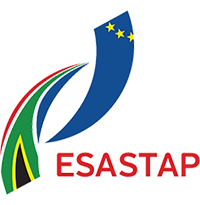Posted: 31 January 2024
Programme: Horizon Europe Framework Programme (HORIZON)
Call: Cross-sectoral solutions for the climate transition (HORIZON-CL5-2024-D2-01)
Type of action: HORIZON-IA HORIZON Innovation Actions
Type of MGA: HORIZON Lump Sum Grant [HORIZON-AG-LS]
Deadline model: Single-stage
Opening date: 7 December 2023
Deadline date: 18 April 2024 17:00:00 Brussels time
For more information, visit the website
Non-lithium-based batteries have the potential to provide solutions for integration of renewables by providing energy storage solutions, either stand-alone, or as part of larger grid. Proposals are invited for projects which advance the development of non-Li battery systems, show their potential to be manufactured at scale at a cost the market will bear, and which meet regulatory requirements (including regulations for the recycling/re-use of batteries).
Projects may target any stationary storage applications, from a few kWh in small-scale domestic behind-the-meter units, to many MWh in large utility-scale front-of-meter installations.
Whilst stationary storage packaging constraints may not be as stringent as mobile applications in terms of volume and mass, total cost (€/kWh/cycle) and safety are critical to proving technological and commercial viability. Safety concerns become especially prominent as installation sizes increase due to the huge amount of stored chemical energy.
This topic is open to all non-lithium battery chemistries.
Projects are expected to:
- Develop and demonstrate sustainable and safe non-lithium battery solutions from abundant, non-toxic raw materials, capable of deployment in a large share of stationary energy-storage markets aligning the safety and sustainability assessment with the Commission Recommendation on safe and sustainable by design chemicals and materials.
- Develop and demonstrate an innovative non-lithium battery technology with energy density and power metrics suited to stationary energy storage applications; and
- Prove the battery system’s sustainability and compatibility with a European supply chain.
- Risks will be demonstrably managed to the lowest possible level and within standard acceptable societal limits for toxicity and safety.
Projects are encouraged to:
- Develop new materials that improve techno-economic performances and/or the ability to meet sustainability targets.
- Show how cell and system design and material improvements optimise techno-economic performance by defining (i) technical and commercial targets, and (ii) quantified success criteria/KPIs by which progress toward achieving the targets may be evaluated during both development and validation phases of the project.
- Demonstrate a credible commercial and technical path, from end-of-project outcomes to a stationary-energy-storage product, and which takes account of future manufacturing and recycling requirements.
- Provide evidence of current and future sustainability, viable European supply chains and rigorous analyses of the complex sustainability and recyclability issues including compatibility with regulation, including recycling regulations.
- Demonstrate minimal towards no maintenance requirements.
- BMS development is within scope where relevant but should not be the main focus of the project. In any case, developments of the BMS need to take into account the renewable energy directive and any pending amendments, notably for the requirements for real-time access to the data of the BMS.
Projects which, in addition, demonstrate the suitability of the solution under development for other emerging energy storage markets, such as motive power for off-road and transport applications with similar system requirements are encouraged.
Projects focussed on materials discovery for novel chemistries are out of scope. However, material refinements of known chemistries undertaken to achieve performance, sustainability, safety and cost targets are in scope.
Plans for the exploitation and dissemination of results for proposals submitted under this topic should include a strong business case and sound exploitation strategy, as outlined in the introduction to this Destination. The exploitation plans should include preliminary plans for scalability, commercialisation, and deployment (feasibility study, business plan) indicating the possible funding sources to be potentially used (in particular the Innovation Fund).
Proposals should indicate to which chapters of the Strategic Research and Innovation Plan for chemicals and materials[2] they will contribute.
In order to achieve the expected outcomes, international cooperation is encouraged for use cases, particularly with India, Africa and Australia.
This topic implements the co-programmed European Partnership on Batteries (Batt4EU). As such, projects resulting from this topic will be expected to report on the results to the European Partnership on Batteries (Batt4EU) in support of the monitoring of its KPIs.


